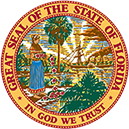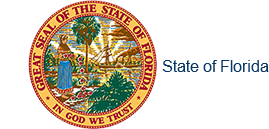This position is no longer being advertised in People First.
- Join Our Talent Community
-
Agency
- Agency for Health Care Administration
- Agency for Persons with Disabilities
- Commission on Offender Review
- Department of Agriculture and Consumer Services
- Department of Business and Professional Regulation
- Department of Children and Families
- Department of Citrus
- Department of Corrections
- Department of Education
- Department of Elder Affairs
- Department of Environmental Protection
- Department of Financial Services
- Office of Financial Regulation
- Office of Insurance Regulation
- Department of Health
- Department of Highway Safety and Motor Vehicles
- Department of Juvenile Justice
- Department of Lottery
- Department of Management Services
- Department of Military Affairs
- Department of Revenue
- Department of State
- Department of Transportation
- Department of Veterans’ Affairs
- Division of Administrative Hearings
- Division of Emergency Management
- Administrative & Office Support
- Executive Office of the Governor
- Fish and Wildlife Conservation Commission
- Florida Board of Governors
- Florida Commission on Human Relations
- Florida Department of Law Enforcement
- Florida Gaming Control Commission
- Florida Legislature
- Florida School for the Deaf and the Blind
- FloridaCommerce
- Justice Administrative Commission
- Office of the Attorney General
- Public Employees Relations Commission
- Public Service Commission
- State Courts System
- Careers
- Internships
- More Info
- Join Our Talent Community
-
Agency
- Agency for Health Care Administration
- Agency for Persons with Disabilities
- Commission on Offender Review
- Department of Agriculture and Consumer Services
- Department of Business and Professional Regulation
- Department of Children and Families
- Department of Citrus
- Department of Corrections
- Department of Education
- Department of Elder Affairs
- Department of Environmental Protection
- Department of Financial Services
- Office of Financial Regulation
- Office of Insurance Regulation
- Department of Health
- Department of Highway Safety and Motor Vehicles
- Department of Juvenile Justice
- Department of Lottery
- Department of Management Services
- Department of Military Affairs
- Department of Revenue
- Department of State
- Department of Transportation
- Department of Veterans’ Affairs
- Division of Administrative Hearings
- Division of Emergency Management
- Administrative & Office Support
- Executive Office of the Governor
- Fish and Wildlife Conservation Commission
- Florida Board of Governors
- Florida Commission on Human Relations
- Florida Department of Law Enforcement
- Florida Gaming Control Commission
- Florida Legislature
- Florida School for the Deaf and the Blind
- FloridaCommerce
- Justice Administrative Commission
- Office of the Attorney General
- Public Employees Relations Commission
- Public Service Commission
- State Courts System
- Careers
- Internships
- More Info
- More Info
-
Agency
- Agency for Health Care Administration
- Agency for Persons with Disabilities
- Commission on Offender Review
- Department of Agriculture and Consumer Services
- Department of Business and Professional Regulation
- Department of Children and Families
- Department of Citrus
- Department of Corrections
- Department of Education
- Department of Elder Affairs
- Department of Environmental Protection
- Department of Financial Services
- Office of Financial Regulation
- Office of Insurance Regulation
- Department of Health
- Department of Highway Safety and Motor Vehicles
- Department of Juvenile Justice
- Department of Lottery
- Department of Management Services
- Department of Military Affairs
- Department of Revenue
- Department of State
- Department of Transportation
- Department of Veterans’ Affairs
- Division of Administrative Hearings
- Division of Emergency Management
- Executive Office of the Governor
- Fish and Wildlife Conservation Commission
- Florida Board of Governors
- Florida Commission on Human Relations
- Florida Department of Law Enforcement
- Florida Gaming Control Commission
- Florida Legislature
- Florida School for the Deaf and the Blind
- FloridaCommerce
- Justice Administrative Commission
- Office of the Attorney General
- Public Employees Relations Commission
- Public Service Commission
- State Courts System
- Careers
- Internships
- Not Finding a job
For assistance, call the People First Service Center at (877) 562-7287 Monday - Friday, 8:00 a.m. to 6:00 p.m., Eastern time

